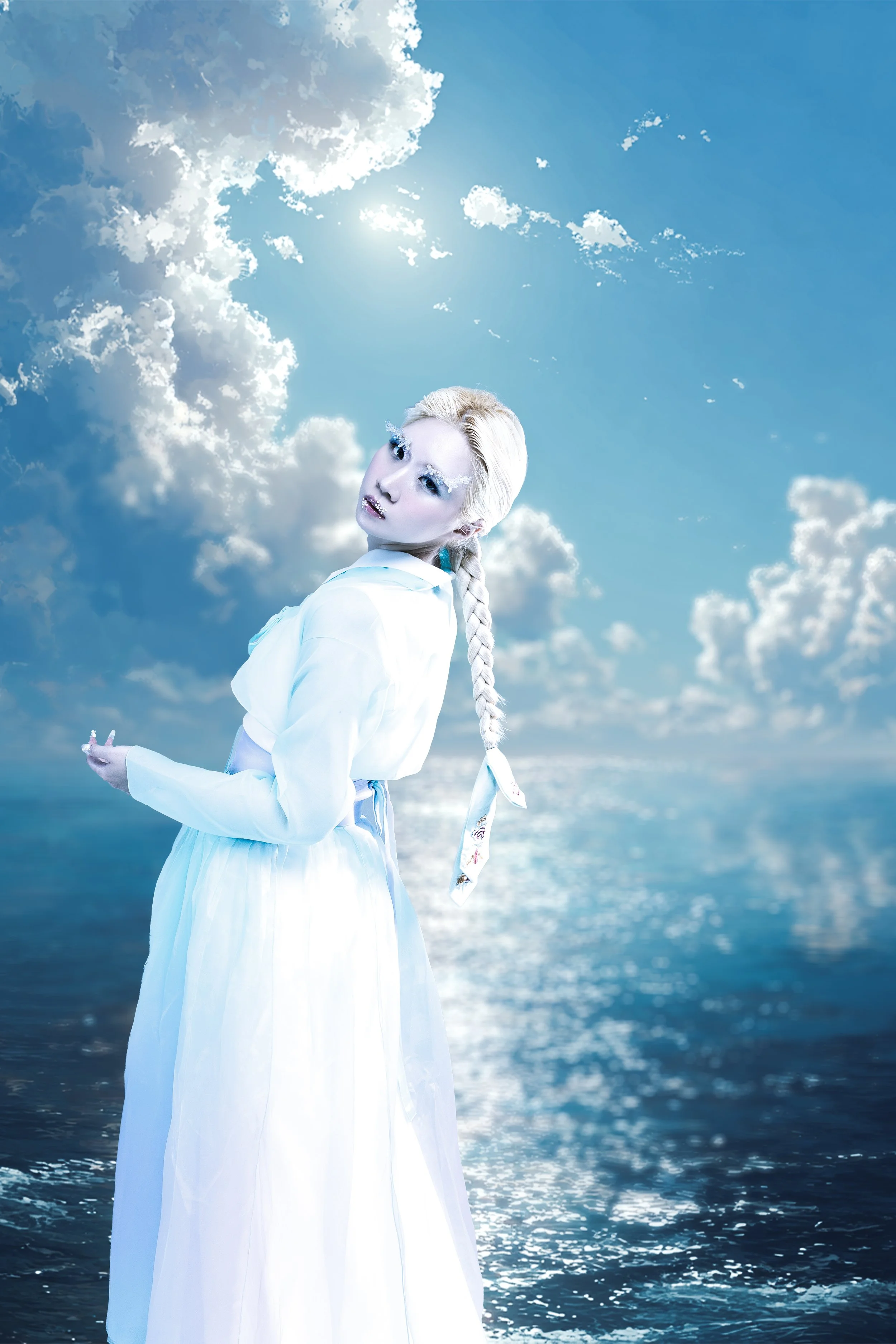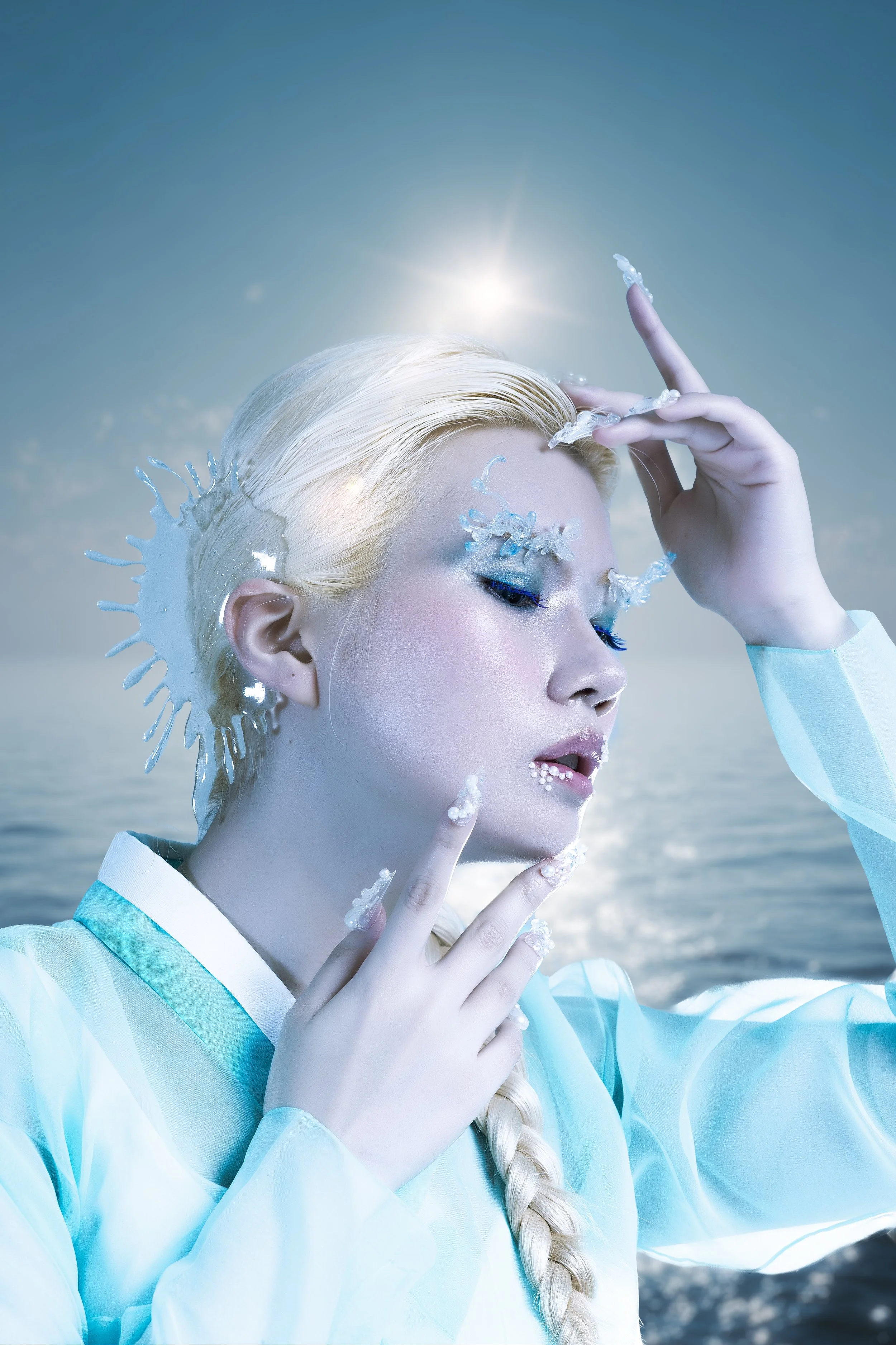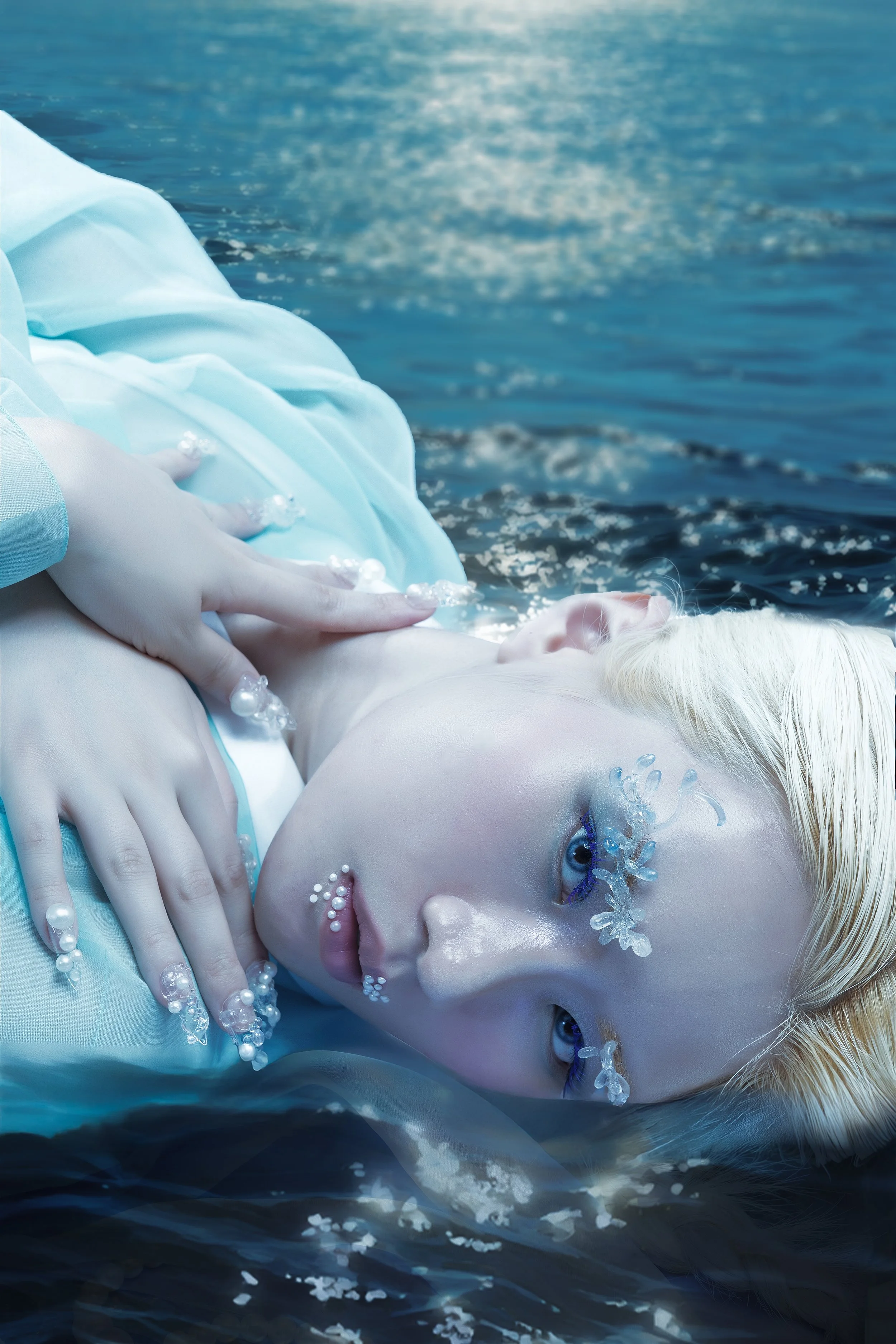Photo Liana Lee IG @liana._.filter
What is your specialization in photography? (portraits, fashion, naturе, street photography, etc.) I’m mainly inspired by the mood, presence, and look of my models — they often evoke a scene in my mind the moment I see them.
What key techniques do you use in your photography? I carefully use lighting to match each subject’s mood, then build surreal edits through color grading and AI-based compositing.
How does your culture or country influence your photography style? Korean culture gives my work a sense of quiet elegance, emotional restraint, and visual balance. I’m inspired by its muted colors, graceful forms, and the subtle formality often found in traditional aesthetics — all of which help me create calm yet surreal images.
What resources (books, online courses, webinars) do you recommend for improving photography skills? I recommend learning the basics through online platforms like YouTube or Skillshare, then focusing on real-world practice — nothing improves your eye and instincts like shooting, failing, and trying again. Experience makes the artist.
What editing programs or tools do you use for processing your photos? Why did you choose them? I use Capture One for live previews during shoots, select images through Adobe Bridge, and do all post-processing in Photoshop for its precision and flexibility.
Which social media platforms or networks do you think are the most useful for promoting photography? I mainly use Instagram and Threads, but I'm still figuring out how to promote my work effectively — I know I have a long way to go.
Do you have favorite photographers or artists who have influenced your style? Which ones? I’m inspired by artists like Cho Gi-Seok, DPR Ian, and Rimayoon — their ability to blend surreal aesthetics with strong emotional narratives has deeply influenced my style.
What technical or creative challenges have you faced while creating your work, and how did you overcome them? I never had formal training or top-tier gear, so I went through a lot of trial and error — but that raw, self-taught experience is what shaped my artistry the most.
How did you hear about "Depo," and what are your expectations for our magazine? Are you interested in participating in future projects or collaborations with "Depo"? I was grateful to be contacted by Depo — I saw the magazine’s thoughtful curation and unique visual identity, so it was exciting to hear from you. I’d be happy to join future projects or collaborations as well.



